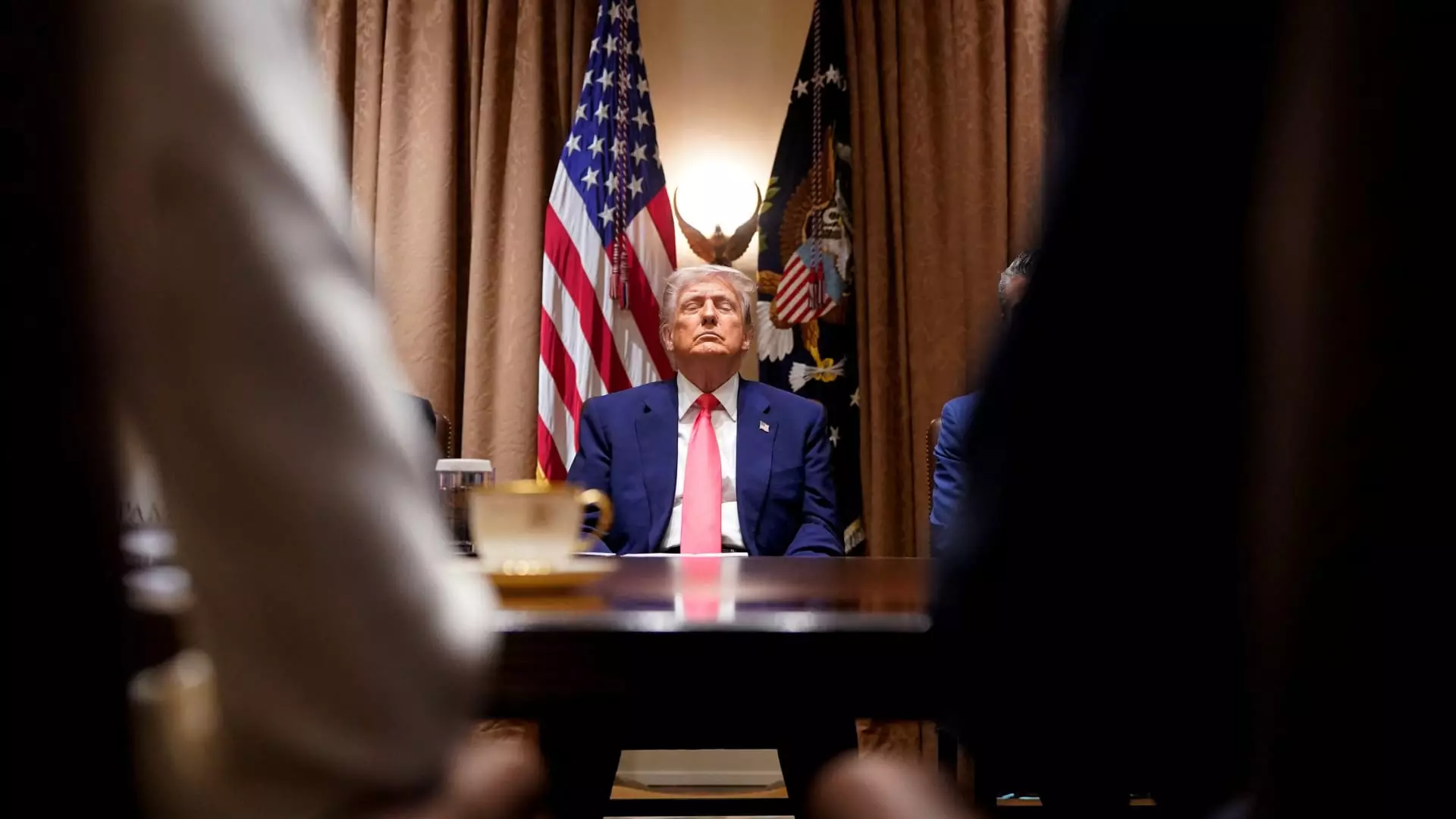In a bold move challenging the authority of the presidency, five small businesses have taken legal action against Donald Trump, alleging that his recent imposition of tariffs is not only detrimental but also unconstitutional. The lawsuit is based on the claim that Trump has overstepped his bounds, invoking the International Emergency Economic Powers Act (IEEPA) to impose sweeping tariffs under the guise of an emergency. The core issue at stake here is the principle of checks and balances in our democracy, most notably, the delegation of power.
Tariffs as Tools of Economic Destruction
The plaintiffs, representing diverse sectors such as retail e-commerce, specialty imports, and even educational products, argue that the tariffs levied by the Trump administration—starting at 10% and soaring to higher levels for certain countries—unreasonably strain small businesses. For these micro-enterprises, unexpected costs can mean the difference between survival and bankruptcy. The Liberty Justice Center, which advocates for these companies, highlights a critical point: trade deficits, often decried by the administration, have existed without catastrophic consequences for decades. The notion that these deficits constitute a national emergency seems not only exaggerated but also blatantly misplaced.
A Question of Legislative Authority
What makes this situation particularly alarming is the outright dismissal of congressional authority. By characterizing trade deficits as an ‘unusual and extraordinary threat,’ Trump appears to undermine the premise that Congress has the exclusive power to impose tariffs. The lawsuit underscores this vital aspect by asserting that taxes—specifically tariffs—should not be enacted without the representation of the electorate. This is an essential tenet of American democracy, one that should not be overlooked in favor of expediency.
Business Realities: The Cost of Tariffs
The financial burden imposed on these small businesses cannot be overstated. For instance, Terry Precision Cycling anticipates that tariffs could lead to an unsustainable cost of up to $1.2 million by 2026. This is not just a number; it represents livelihoods, potential layoffs, and the stifling of innovation in sectors that should thrive without such undue governmental interference. The barrage of tariffs creates a ripple effect that extends beyond individual companies, ultimately harming consumers who face inflated prices and fewer choices.
The Ripple Effects on American Entrepreneurship
At its heart, this lawsuit is about defending the spirit of entrepreneurship that drives this country. Small businesses are the backbone of the economy and often act as the most significant employers in local communities. When tariffs send shockwaves through these enterprises, it jeopardizes the entire fabric of our marketplace. Instead of fostering economic growth, such policies lead to unnecessary chaos and uncertainty. The legal challenge initiated by these small businesses is more than just a court case; it is a rallying cry for fair trade practices and sound legislative governance that respects democracy and empowers innovation.
In a political climate deeply divided over economic issues, such challenges highlight the critical need for responsible leadership and the importance of participatory governance.

